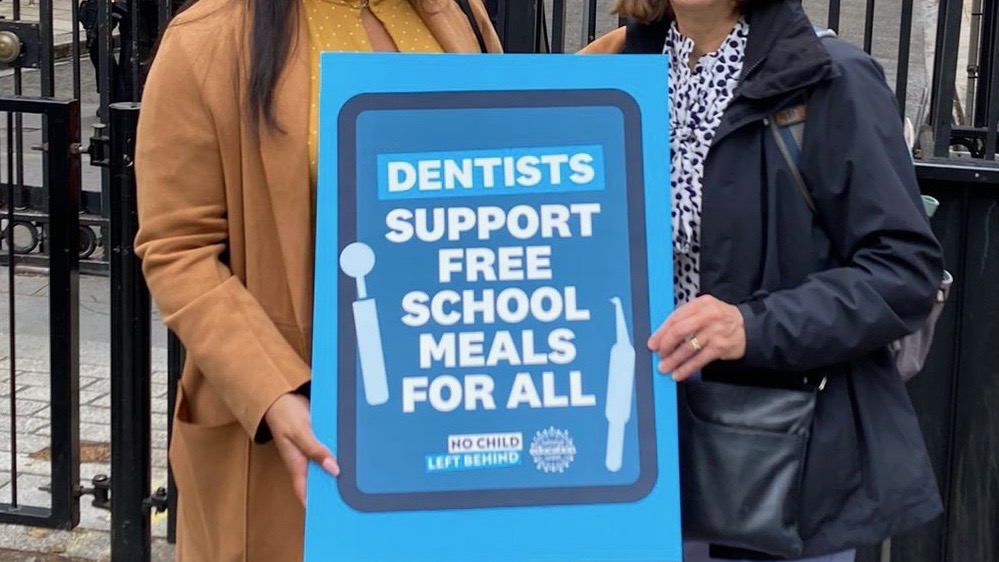New evidence continues to pour in, showing how the cost of living crisis in the United Kingdom is devastating child health. A recent survey conducted among school nurses from the School and Public Health Nurses Association (SAPHNA) and members of the British Dental Association (BDA) revealed that 65% of the respondents noticed a deterioration in children’s health and wellbeing, which can be attributed to the worsening of living standards over the past year.
Out of the 313 health workers surveyed, 180 (57%) reported working with children experiencing lower energy levels than usual, while 167 (53%) observed slower weight gain in children compared to previous reports. Shockingly, 245 health workers, almost 80% of the survey participants, stated that children’s dental health had worsened, with an increasing number of tooth decay cases being recorded.
These survey results align with the analysis presented in the Broken Plate 2023 report, which warns that children in Britain are shorter than most of their peers in other European countries and are grappling with health conditions linked to the quality of their nutrition. These issues can have severe long-term consequences, including a shorter life expectancy, extension of the obesity epidemic, and more serious complications related to diabetes.
The organizations operating under the campaign No Child Left Behind, coordinated by the National Education Union (NEU), assert that the British government has the power to address the problem and provide concrete solutions by making the existing Free School Meals program universal for all primary school children. The initiative enjoys widespread support among health workers, with 94% of the SAPHNA-BDA survey respondents backing the idea, as well as the general population. As representatives of the No Child Left Behind campaign prepared to deliver an open letter to Prime Minister Rishi Sunak on June 29, 240 organizations and 90,000 individuals signed in support of the initiative.
NEU X No Child Left Behind event https://t.co/NZv17otkUS
— National Education Union (@NEUnion) June 29, 2023
Sunak has repeatedly avoided the possibility of introducing universal Free School Meals, citing the high costs of implementation. However, some analyses have shown that the long-term benefits of such a move would outweigh the expenses and bring significant gains to the community. For every pound (USD 1.26) invested in universal Free School Meals, there would be a return of at least £1.38 (USD 1.74) in terms of health, education, and other socioeconomic benefits, according to an analysis commissioned by Impact on Urban Health.
Expanding the Free School Meals program would address the concerns of health workers who have witnessed the devastating effects of malnutrition on children’s lives over the past year. “Hungry children cannot learn. Hungry children feel isolated and ashamed, this can make them disengage and become withdrawn…Poor nutrition causes long term health and social problems, and reduces the life chances of the children in our care,” said a school nurse who took part in SAPHNA’s survey.
Read: Ultra-processed food dominates child nutrition in the UK
Guaranteeing a hot meal at school would also alleviate some of the pressure on parents who are currently struggling to feed their families and keep up with bills, even if they are employed. During a recent Right to Food meeting, pediatrician Jessica Thomas highlighted the connection between this struggle and the reflections made by health workers in hospital wards. Among the 16 children currently admitted to the ward where she works, seven have been hospitalized due to reasons that can be linked with deprivation and poverty. Some suffer from severe asthma exacerbated by substandard housing, while others experience the effects of malnutrition.
Thomas mentioned one of her patients, a months-old baby whose mother avoided consultations during pregnancy due to deportation fears. The baby has remained in the hospital after she struggled to gain weight. Her mother was forced to ration formula to afford food for her other children and cannot breastfeed due to her own malnourished condition.
The number of food-insecure households in the UK has increased over the past year, reaching 17%. To follow a healthy diet based on government guidelines, the most deprived fifth of the UK population would have to spend 50% of their disposable income on food, as indicated in the recent Broken Plate report. Unsurprisingly, poor and working class people are less likely to consume nutritious food compared to well-off people, with certain food categories being particularly unaffordable. Vegetables and fruits, which should form a substantial part of a person’s daily diet, are currently the most expensive food category recognized by government guidelines in the UK. Their prices have also experienced the sharpest increase between 2021 and 2023, compared to other food categories.
During a launch of the Broken Plate 2023 report, Michael Marmot, one of the world’s leading experts on social determinants of health, emphasized that following a healthy diet is not merely an individual choice, especially when considering poor and working-class communities. This feeling appears to be shared among frontline health workers, public health experts, and workers’ organizations. People make food choices based on what they can afford, and it is the responsibility of the government to ensure that healthy food is accessible to everyone, particularly children.
People’s Health Dispatch is a fortnightly bulletin published by the People’s Health Movement and Peoples Dispatch. For more articles and to subscribe to People’s Health Dispatch, click here.





